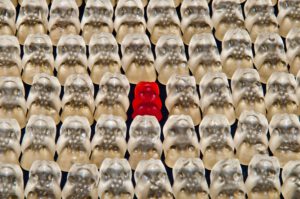 The problem is not that we have prejudices and make judgements about other cultures. The problem arises when we deny these, and forbid ourselves to look at them.
The problem is not that we have prejudices and make judgements about other cultures. The problem arises when we deny these, and forbid ourselves to look at them.
People with different origins are more and more part of our everyday life and future. We will therefore be increasingly confronted with different ways of behaving, thinking and feeling.
If we are not able to deal with this process of the interculturalization of our everyday life, we will feel insecure and threatened, and put the blame for this on the others. More conflicts will arise and groups will polarize. Instead of blaming each other, it is much more rewarding to focus on the dynamic processes: what happens in the interaction between people from different cultures? The key questions are:
- Why do people often react emotionally to intercultural conflicts?
- How can we benefit from our judgments?
In this article, we will approach this field of knowledge from the perspective of personal reflex reactions
to the unknown; what dynamics arise at an identity level when people from different cultural
backgrounds meet. To understand these processes, we will first explain the concept of cultural
dynamics. To do this, we will use Kramer’s model, which distinguishes three phases of the intercultural
interaction process. The first phase is about going beyond judgment. How can you, as a coach, facilitate
the process of opening up? The method of voice dialogue is a useful tool in this.
Gepubliceerd in: © European Mentoring & Coaching Council – December 2009
